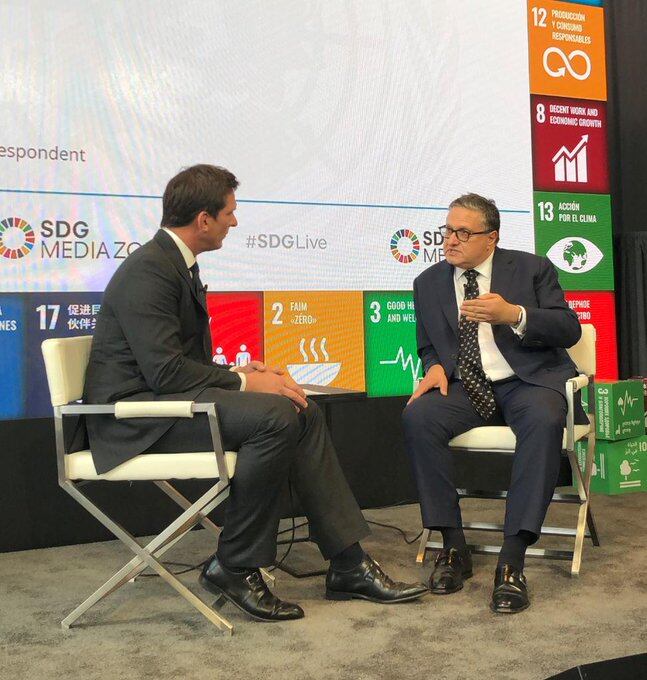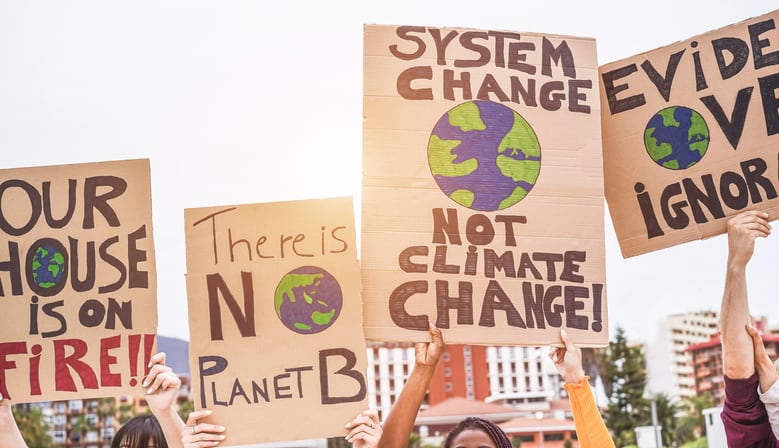This week, L’Oréal committed to zero-net emissions by 2050 as part of the United Nations' Global Compact Business Ambition for 1.5°C initiative – a coalition to develop business models with science-based targets that limit a global temperature rise above pre-industrial levels.
The commitment was made as the United Nations kicked off its series of high-level meetings at the 74th session of the General Assembly in New York.
Gradual steps to sustainability recognition
L’Oréal said it would take gradual steps towards the 2050 goal, reducing its absolute scope 1, 2 and 3 greenhouse gas emissions 25% by 2030 and scope 1 and 2 emissions across all industrial, administrative and research sites completely by 2025.
The beauty major already achieved carbon neutrality across 38 sites at the end of 2018 and slashed emissions from its industrial sites by 77% between 2005-2018.
L’Oréal received recognition for its ongoing work at this week’s summit, receiving LEAD status from the UN Global Compact – given to companies representing “the highest level of engagement” in sustainability efforts.
Greenhouse gas emissions
Scope 1 – All direct emissions from the activities of an organisation or under their control
Scope 2 – Indirect emissions from electricity purchased and used by the organisation
Scope 3 – All other indirect emissions from activities of the organisation, occurring from sources that they do not own or control
‘There is no senior leadership meeting without a conversation on climate change’

Speaking in an interview led by CNN’s chief climate correspondent Bill Weir, live-streamed on UN WebTV from the summit, Emmanuel Lulin, Chief Ethics Officer at L’Oréal, said addressing climate change had to go beyond rules, regulations and commitments and become a corporate mindset.
“We have to make sure we set up the right culture, the right climate, within the organisation so that we do understand that we need to do the right thing,” Lulin told Weir during the UN’s SDG Media Zone session.
This, he said, would be driven by the conviction of senior management at L’Oréal, as it had done for some 20 years.
“There is no senior leadership meeting without a conversation on climate change. There is no meetings in any country – we operate in 70 countries – without a conversation on climate change and what we can do, should do, how to do more etc.”
Under pressure – consumers, clients, stakeholders
Lulin said there was now more outside pressure too, from public opinion, consumers, clients, stakeholders and sometimes shareholders.
“Down the road, what makes it efficient is the sincerity with which we do things,” he said.
“Because we all have commitments, we all have pledges, we all have great documentations etc. and you cannot measure how good a company or organisation, public or private, is doing just by the quality of the documentation. The real test is the sincerity with which you walk to talk. So, my job is to make sure it’s more of a mission than a job; it’s to make sure we walk the talk and go beyond the law; that we don’t just obey what we’re asked to do, that we agree on the idea and do it voluntarily and do it proactively.”
Consumer demand for environmentally-friendly alternatives was there, he said, and it would only continue to grow. And while it wasn’t always straightforward to substitute products – sometimes ingredient options were lacking, or there wasn’t enough supply at the right cost – he said L’Oréal remained focused on its supply chain. It was careful with product design, product claims and all components in the final product, he said, and very focused on human rights, which “to a large extent” now aligned with climate change.
“The challenges have been around for a long time, it’s just an acceleration, a huge acceleration and also an acceleration of time; time pressure is absolutely huge.”
Closing the generation gap, fast
Asked what his hopes and fears were for the future, Lulin told Weir: “My main fear is we’re not acting fast enough; is that we reach a point where things will be, where it will be too late. And that’s a huge fear.
“I think there is a gap that we need to reduce between generations. I talk systematically to the new generation when I visit our operations and I see that there is a misunderstanding between the last two generations and the generation of the people who are in command. We need to have a much higher awareness and move much faster. I really feel a sense of urgency.”




